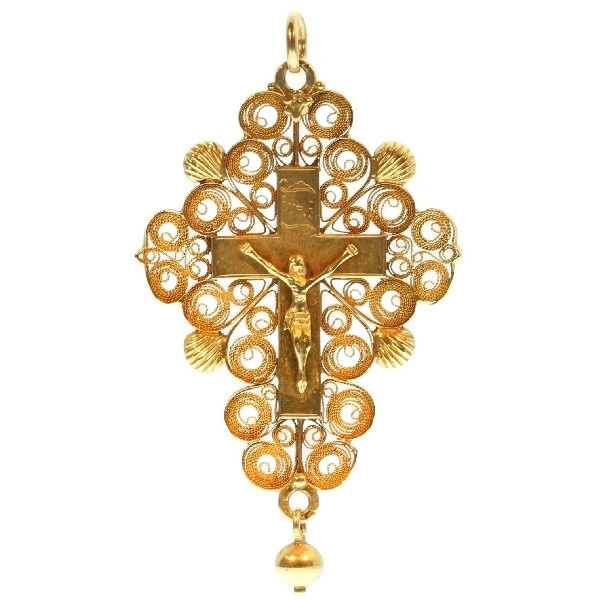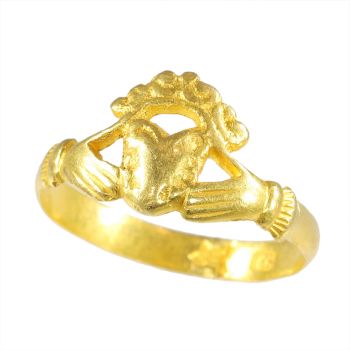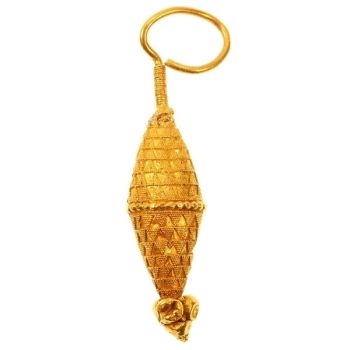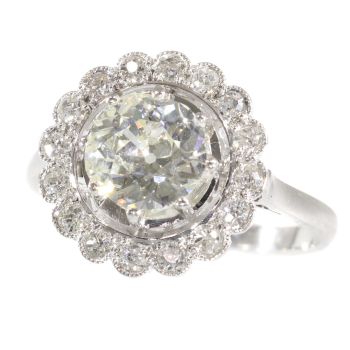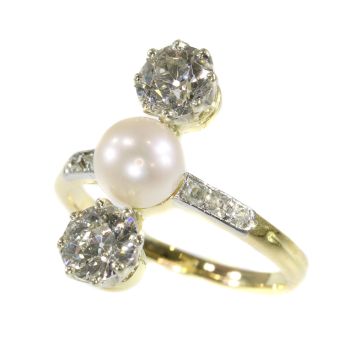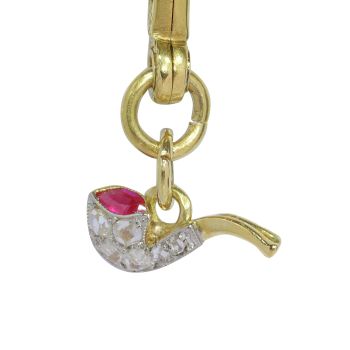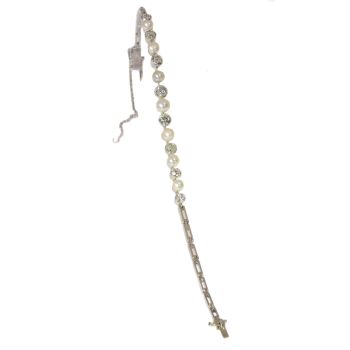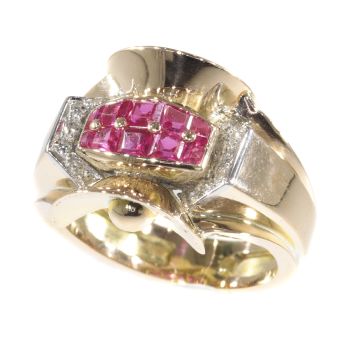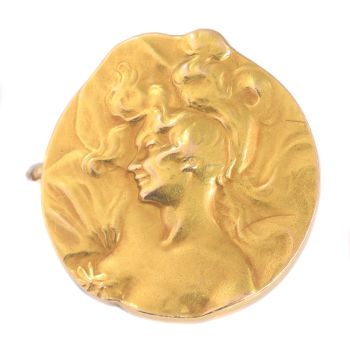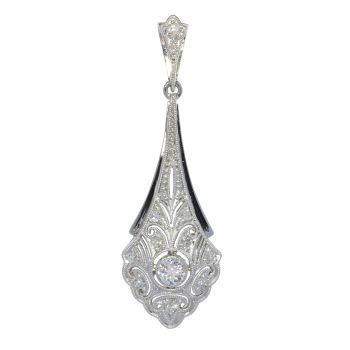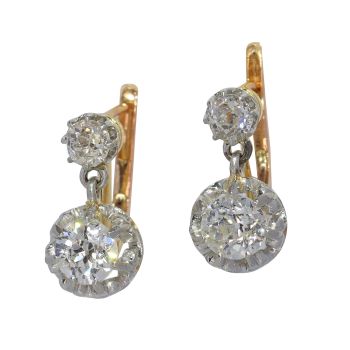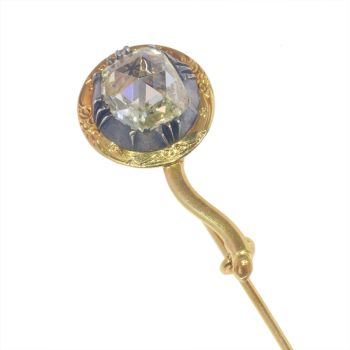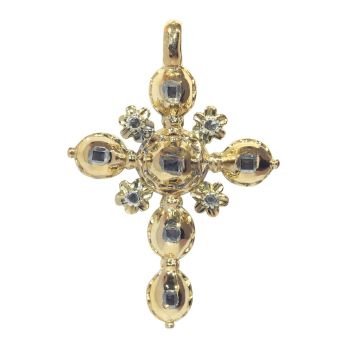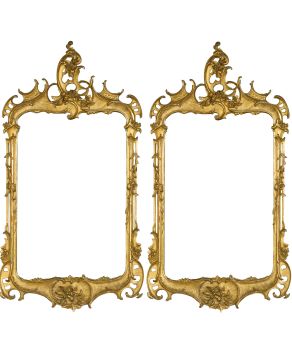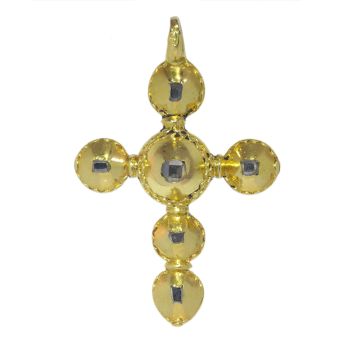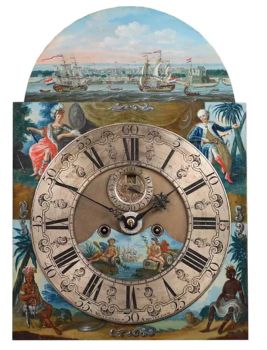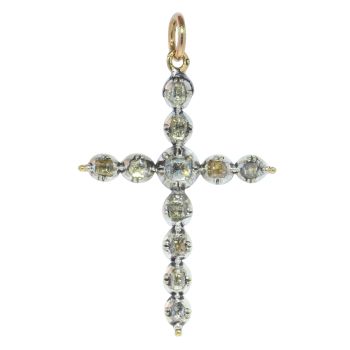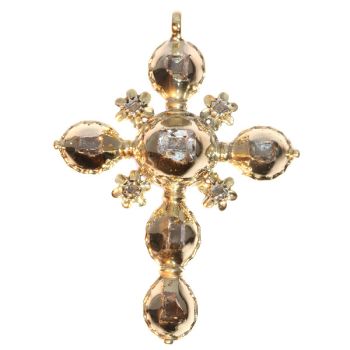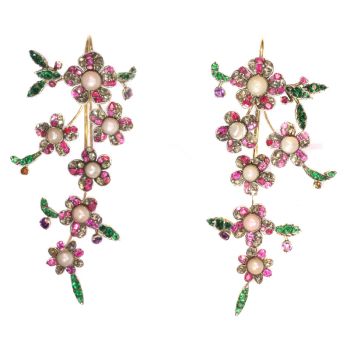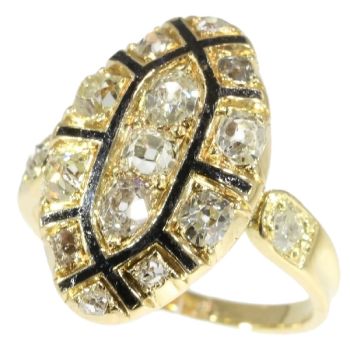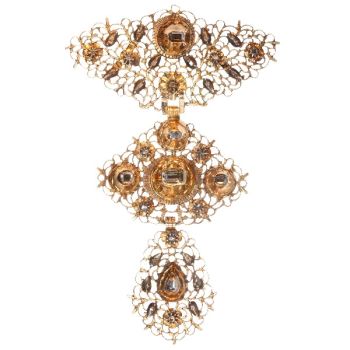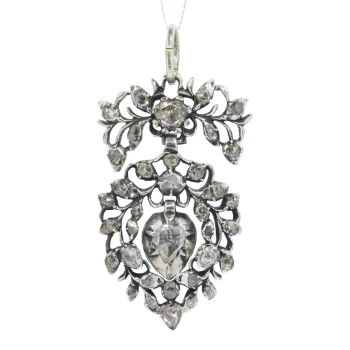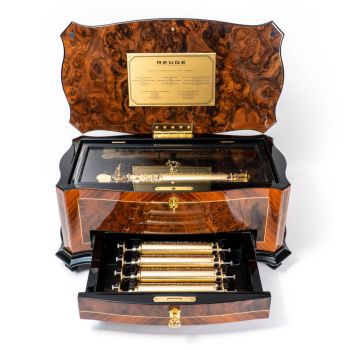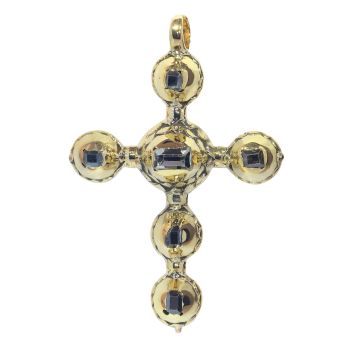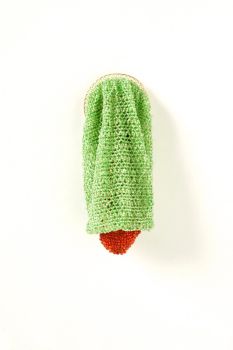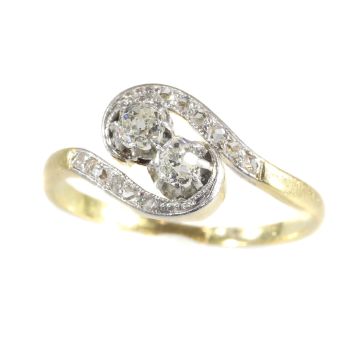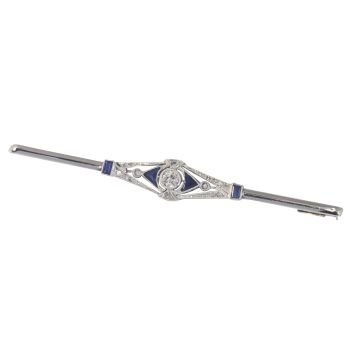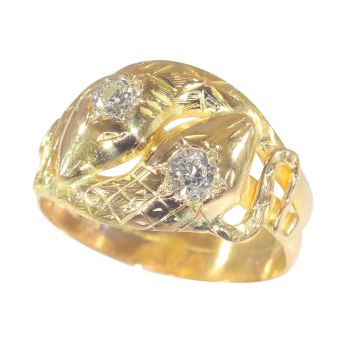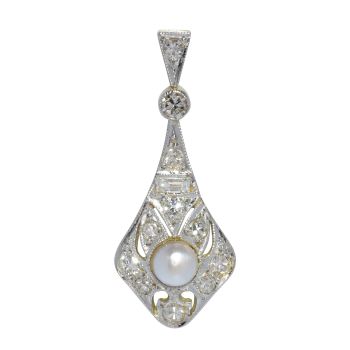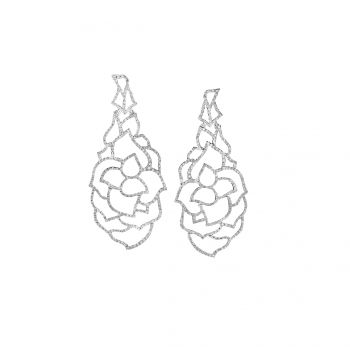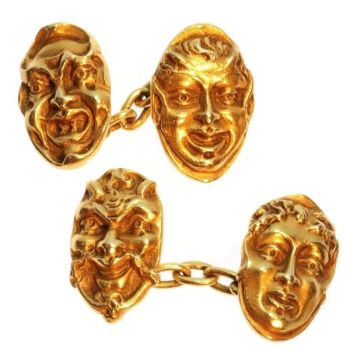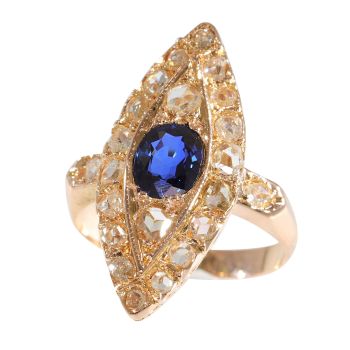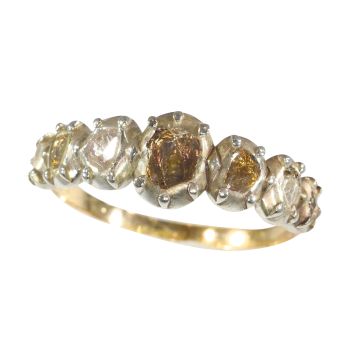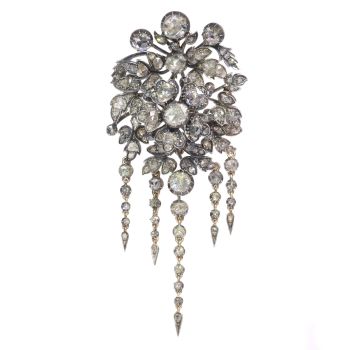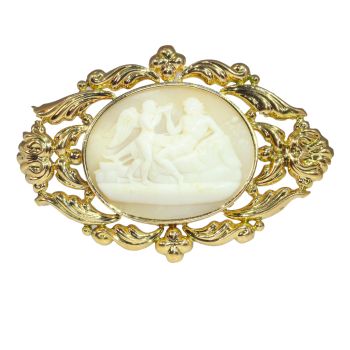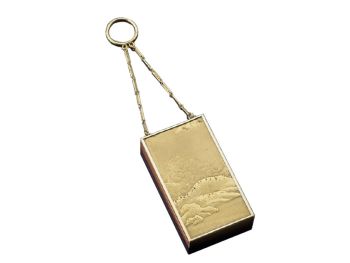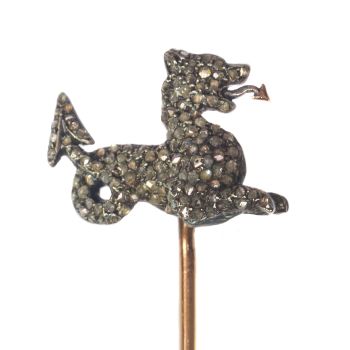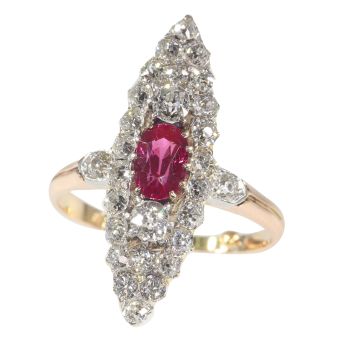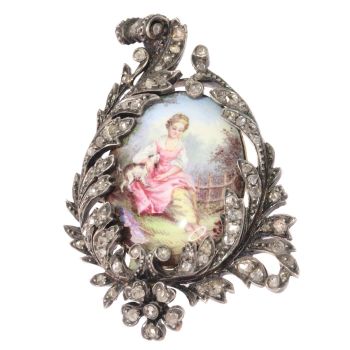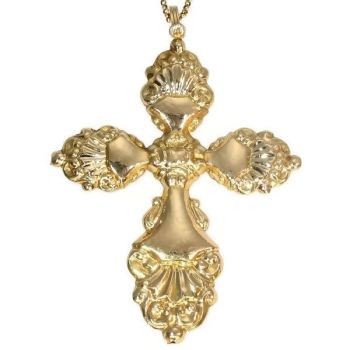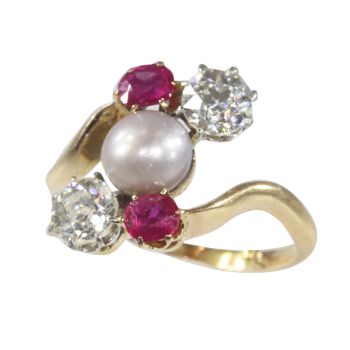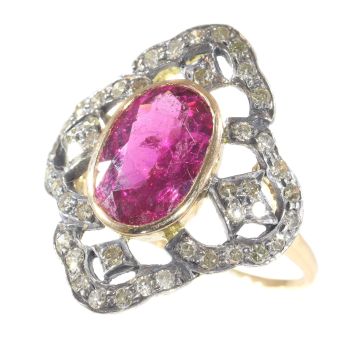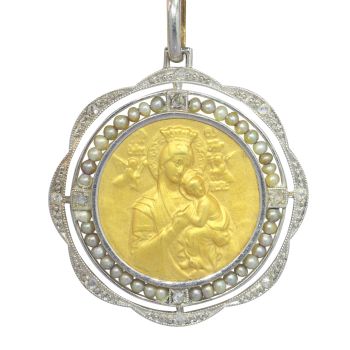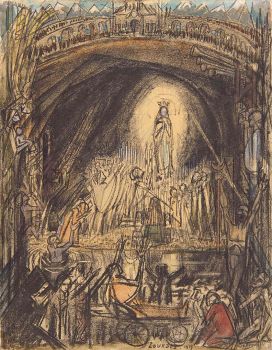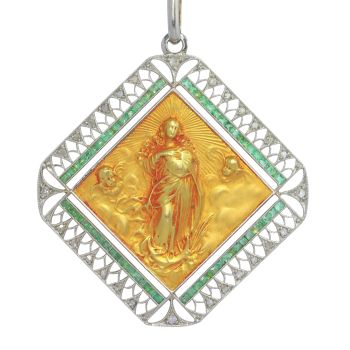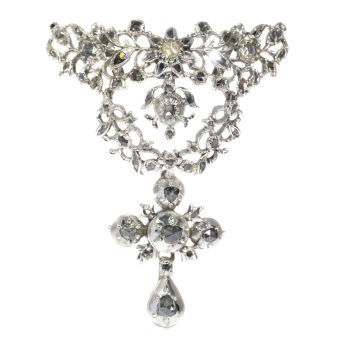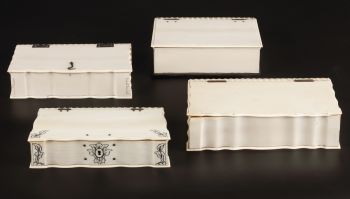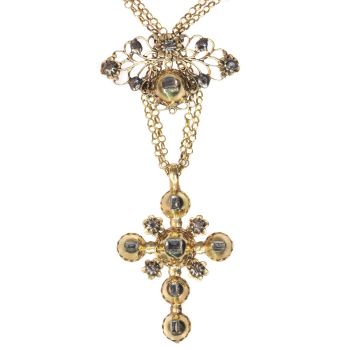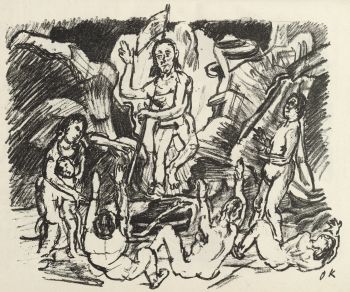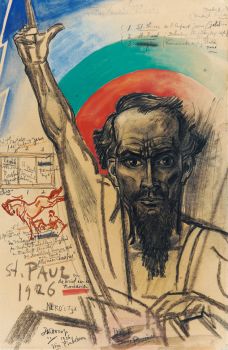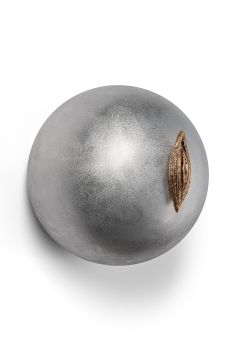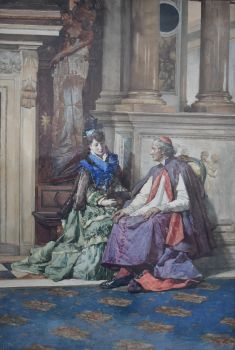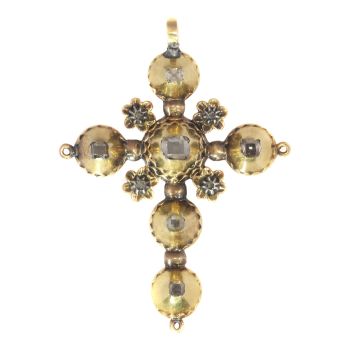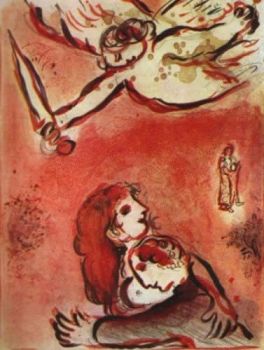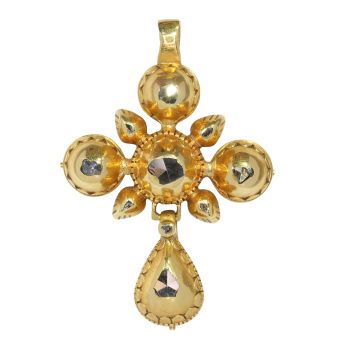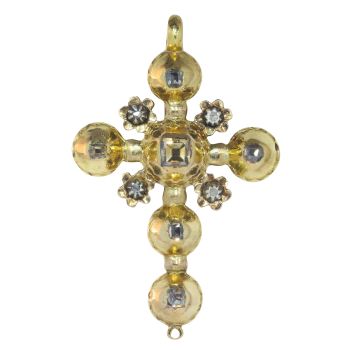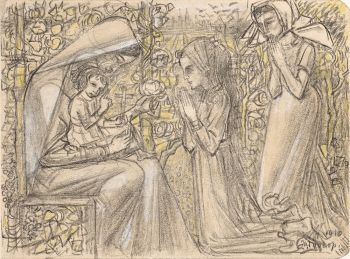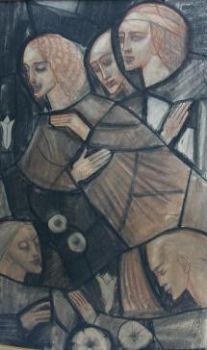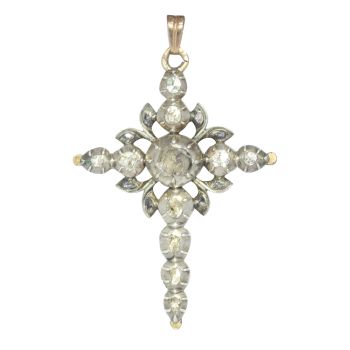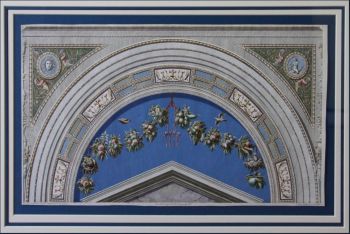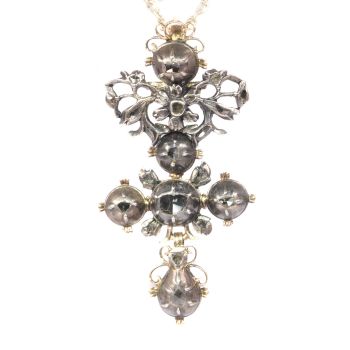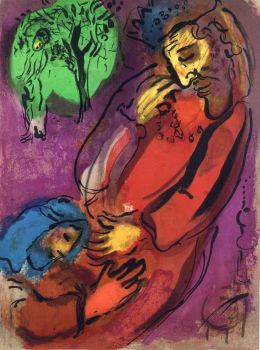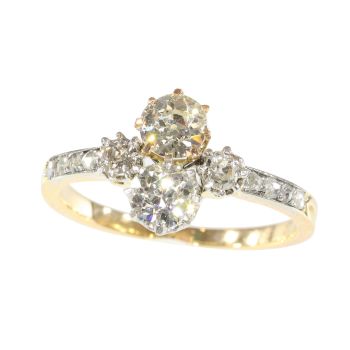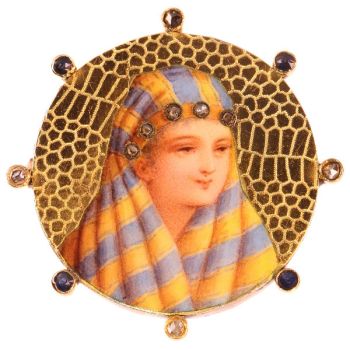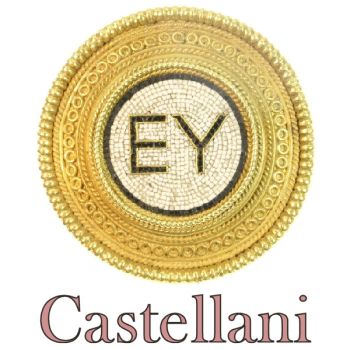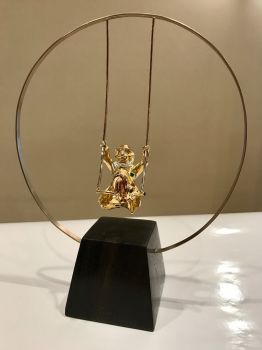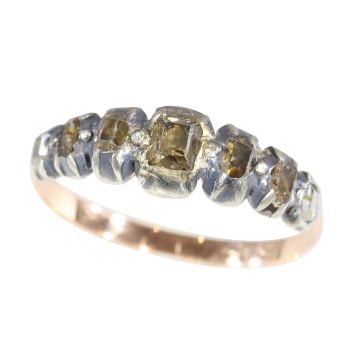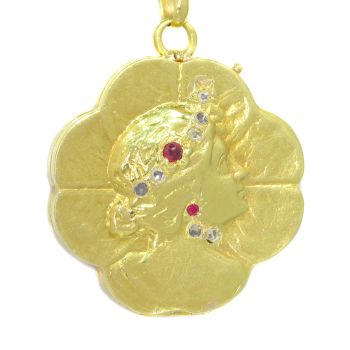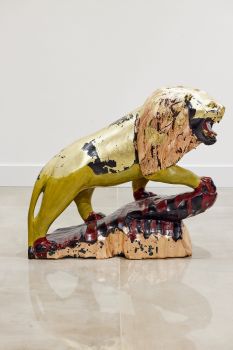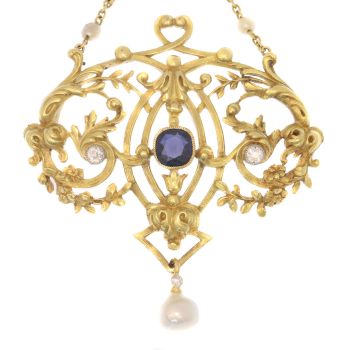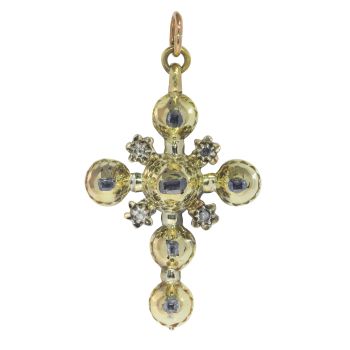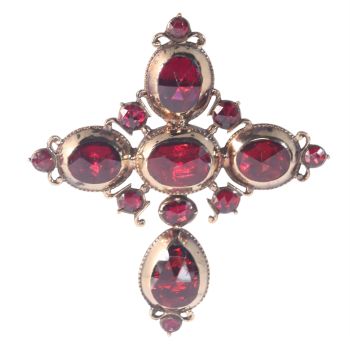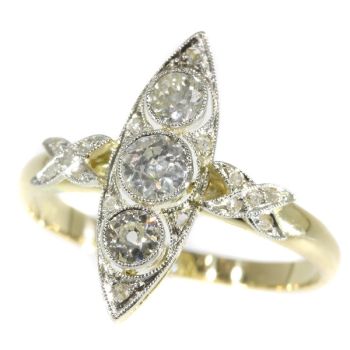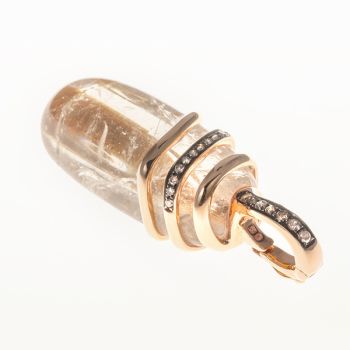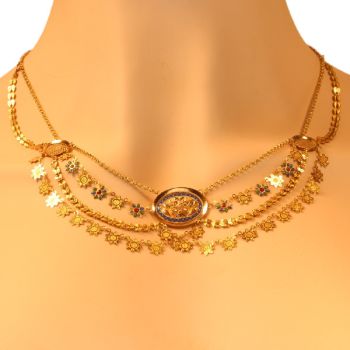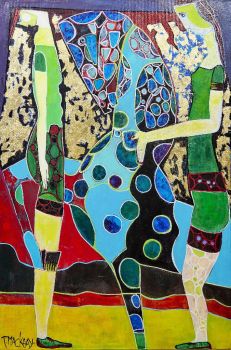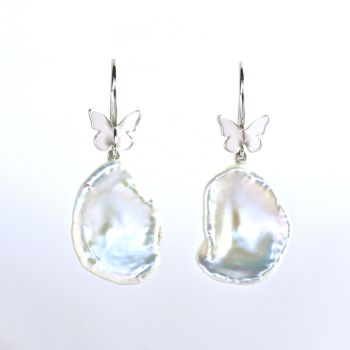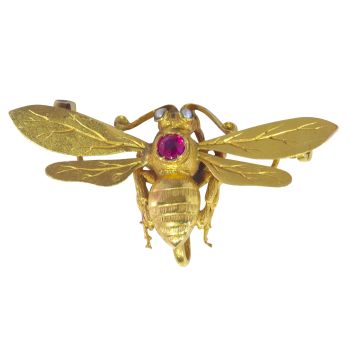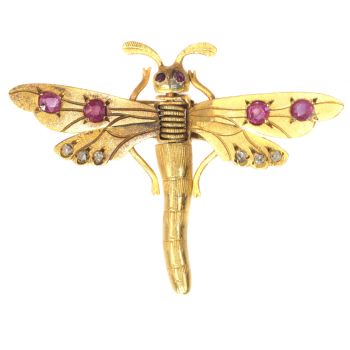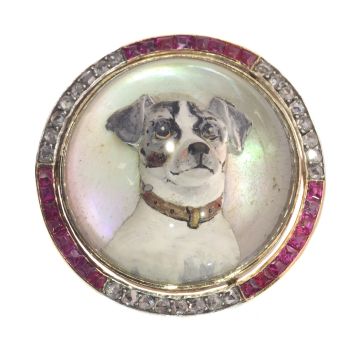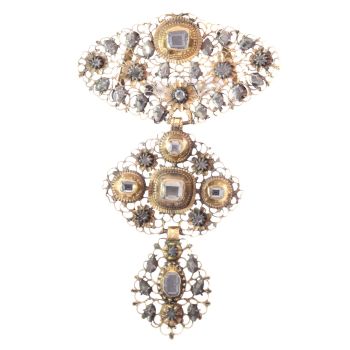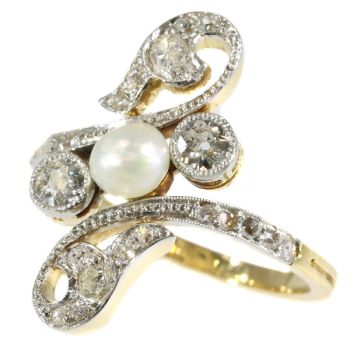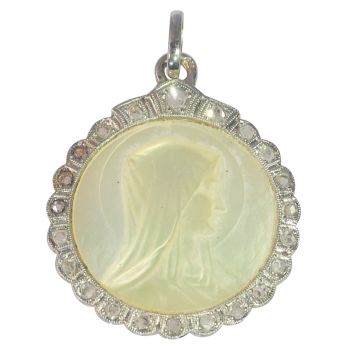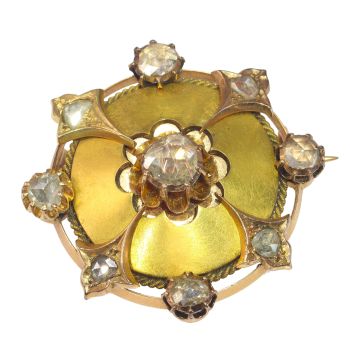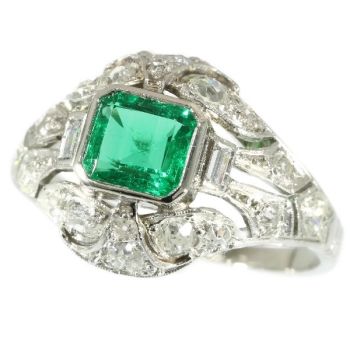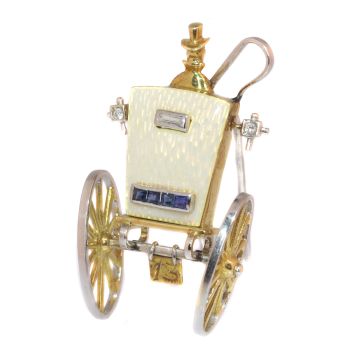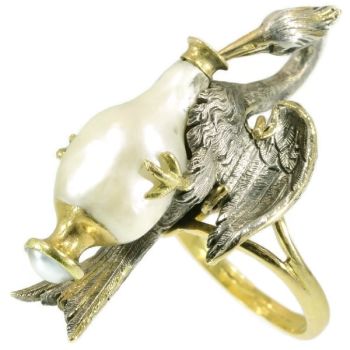Croix rococo française antique en or en filigrane de la Révolution française 1790
Artiste Inconnu
Or
€ 2.850
Adin Fine Antique Jewellery
- Sur l'oeuvre d'art
Antique jewelry object group: cross pendant
Condition: excellent condition
- (more info on our condition scale)
Country of origin: France
Style: Rococo - Rococo (less commonly roccoco) also referred to as "Late Baroque" is an 18th century style which developed as Baroque artists gave up their symmetry and became increasingly more ornate, florid, and playful. Rococo rooms were designed as totalworks of art with elegant and ornate furniture, small sculptures, ornamental mirrors, and tapestry complementing architecture, reliefs, and wall paintings. It was largely supplanted by the Neoclassic style. In 1835 the Dictionary of the French Academystated that the word Rococo "usually covers the kind of ornament, style and design associated with Louis XV's reign and the beginning of that of Louis XVI". It includes therefore, all types of art produced around the middle of the 18th century inFrance.
- See also: Rococoor more info on styles
Style specifics: Rococo is a style of decoration that followed, c.1730, the baroque style in France (where it was also called rocaille), the principal features of which are asymmetry of ornament and a repertoire consisting to a considerable extent of rockwork, shells,flowers, foliage, and scrollwork. It was developed in France under Louis XV, 1715-74, and spread to Italy, Germany, and Austria and to a lesser extent to England.
Period: ca. 1790
- (events & facts of this era, poetry of this era, fashion of this era)
Source of inspiration: Christianity
Theme: Cross - The cross is one of the most ancient human symbols, and is used by many religions, such as Christianity. It is frequently a representation of the division of the world into four elements (or cardinal points), or alternately as the union of theconcepts of divinity, the vertical line, and the world, the horizontal line. (from: Wikipedia)
Material: 18K yellow gold
- (more info on precious metals)
Technique: Filigree (formerly written filigrann or filigrane) is a delicate kind of jewel work made with twisted threads usually of gold and silver or stitching of the same curving motifs. It often suggests lace and French from 1660 to the late 19th century. Itshould not be confused with ajoure jewellery work; while both have many open areas, filigree involves threads being soldered together to form an object and ajoure involves holes being punched, drilled, or cut through an existing piece of metal. (from: Wikipedia)
Extra information: This particular style of cross is specific for the city of Boulogne, France
Hallmarks: Illegible remains of French hallmark but clearly readable master mark at back in center.
- (more info on hallmarks)
Dimensions: height 7,14 cm (2,81 inch), width 4,05 cm (1,59 inch)
Weight: 7,50 gram (4,82 dwt)
Reference Nº: 16270-0175
Copyright photography: Adin, fine antique jewelry
- Sur l'artiste
Il peut arriver qu'un artiste ou un créateur soit inconnu.
Certaines œuvres ne doivent pas être déterminées par qui elles sont faites ou elles sont faites par (un groupe d') artisans. Les exemples sont des statues de l'Antiquité, des meubles, des miroirs ou des signatures qui ne sont pas claires ou lisibles, mais aussi certaines œuvres ne sont pas signées du tout.
Vous pouvez également trouver la description suivante :
•"Attribué à …." A leur avis probablement une oeuvre de l'artiste, au moins en partie
•« Atelier de …. ou « Atelier de » À leur avis, une œuvre exécutée dans l'atelier ou l'atelier de l'artiste, éventuellement sous sa direction
•« Cercle de… ». A leur avis une oeuvre de la période de l'artiste témoignant de son influence, étroitement associée à l'artiste mais pas forcément son élève
•« Style de … ». ou "Suiveur de ...." Selon eux, une œuvre exécutée dans le style de l'artiste mais pas nécessairement par un élève ; peut être contemporain ou presque contemporain
•« Manière de… ». A leur avis une oeuvre dans le style de l'artiste mais d'une date plus tardive
•"Après …." A leur avis une copie (quelle qu'en soit la date) d'une oeuvre de l'artiste
•« Signé… », « Daté… ». ou « Inscrit » À leur avis, l'œuvre a été signée/datée/inscrite par l'artiste. L'ajout d'un point d'interrogation indique un élément de doute
• "Avec signature ….", "Avec date ….", "Avec inscription …." ou "Porte signature/date/inscription" à leur avis la signature/date/inscription a été ajoutée par quelqu'un d'autre que l'artiste
Êtes-vous intéressé par l'achat de cette oeuvre?
Artwork details
Related artworks
- 1 - 4 / 12
Artiste Inconnu
A Surinam-themed Amsterdam long-case clock1746 - 1756
Prix sur demandeZebregs & Röell - Fine Art - Antiques
 Sélectionné par
Sélectionné parGallerease Magazine
1 - 4 / 14- 1 - 4 / 24
Artiste Inconnu
UNE COLLECTION DE QUATRE BOÎTES À BIBLE EN IVOIRE SRI LANKAN18th century
Prix sur demandeZebregs & Röell - Fine Art - Antiques
1 - 4 / 24- 1 - 4 / 24
- 1 - 4 / 12

